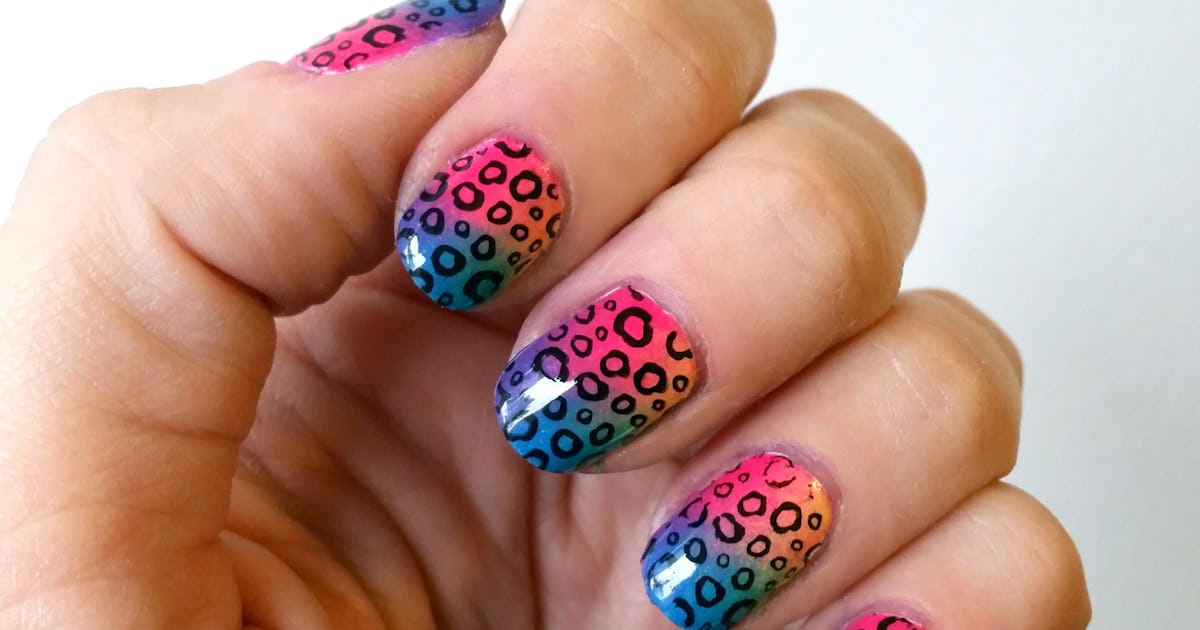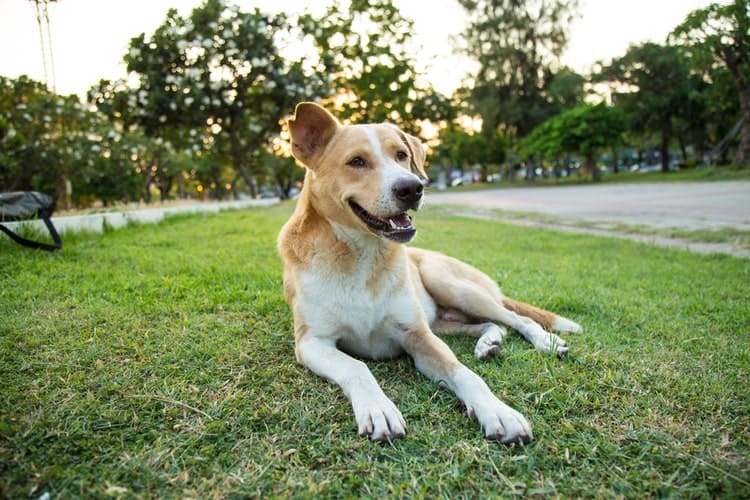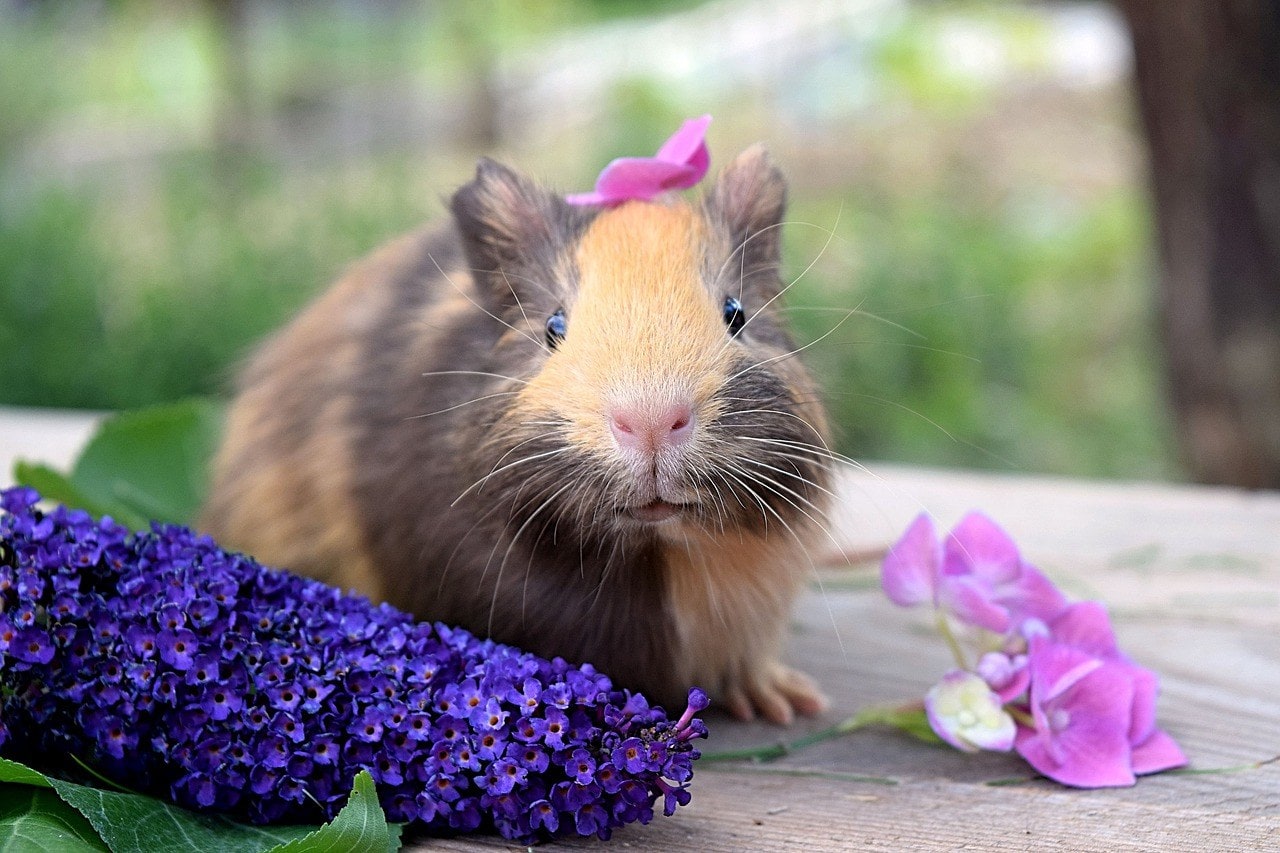

Guinea pigs are entertaining little masters of body language. You can laugh the entire time your little guy is exploring, watching all of their funny mannerisms. But guinea pigs might not always be so happy. Just how can you be sure your tiny buddy is enjoying their life?
Watching behavior is really important since it gives you all the clues you need. If you’ve recently noticed a big change in the way they act, you might be wondering if maybe something is wrong. Or maybe you just want to know that you’re a good owner. Either way, let’s talk about guinea pig happiness.

Healthy Guinea Pig Behavior
Guinea pigs are adventurous, bright-eyed little creatures with amiable nature. However, they might take a minute to get warmed up at first. These little prey animals are prone to hyper-focusing on everything around them. It’s permanently ingrained in their DNA, as these guys are easy targets in the wild.
Once they get over the hump of pinning down exactly who you are, they will start to get curious. These rodents can become beloved family pets who love to hang out with you outside of their enclosure with frequent interaction and socialization.
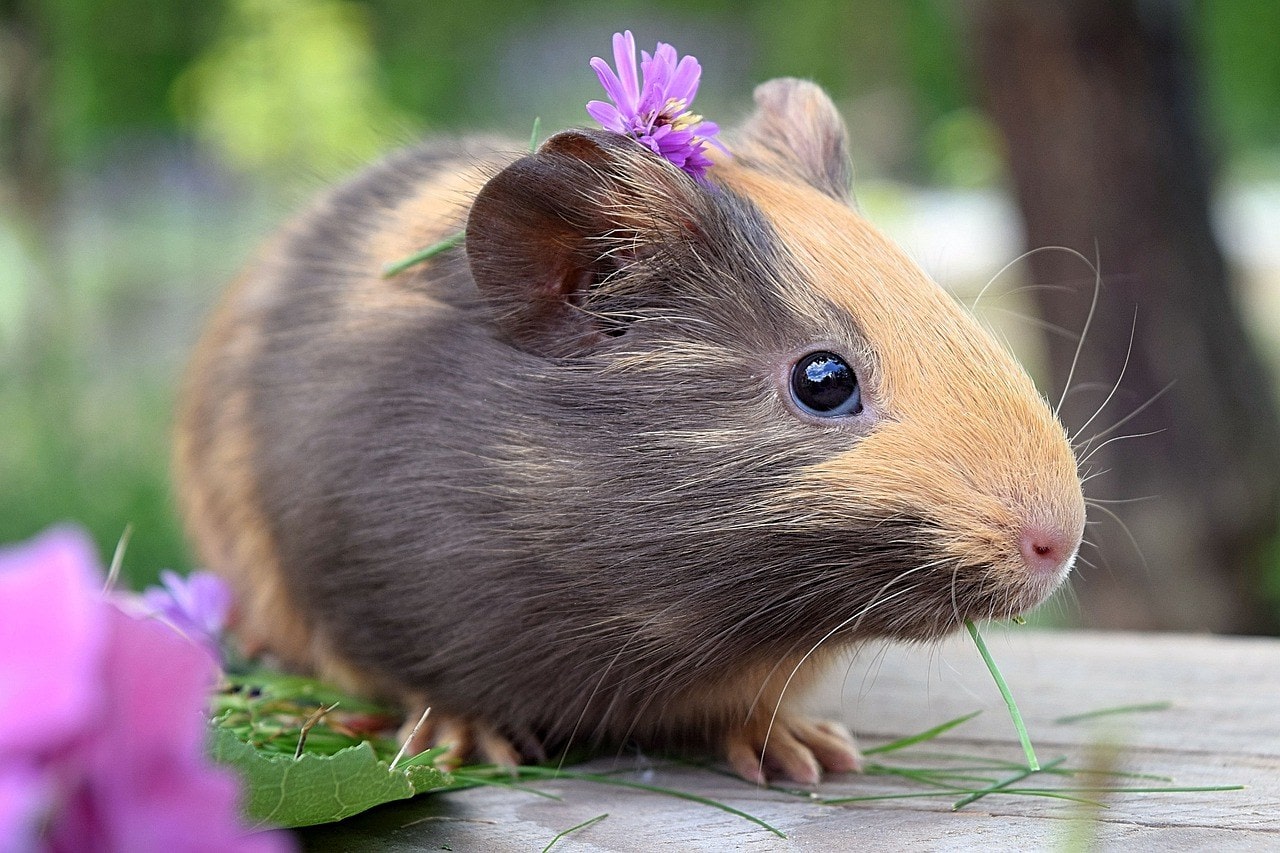
Things Happy Guinea Pigs Do
So, how can you know if your guinea pig is happy? There are tons of actions and vocalization to let you know how your piggy feels. Let’s explore each.
1. Popcorning
If you get your little one out for playtime, you might notice them popping up in the air like little kernels of corn—hence the cute nickname “popcorning.”
It’s not unusual to see a guinea pig popcorn for glee when they get a treat. This action is one of pure excitement and happiness. So, if your little piggy is popping in the air, you’re doing something right.
2. Purring
If you’re cuddling with your guinea pig—or giving them lots of chin rubs—you might hear a low roaring purr. This noise means they love whatever you’re doing, so don’t stop!
Purring is a surefire sign that your little one is quite enjoying your company. This is part of their love language, and if you’re lucky enough to hear it—they are happy boys or girls indeed.
3. Socializing
If your pig is out of his cage and wants to interact with you over exploring, this is a very good sign you’ve made a friend. They feel comfortable enough to abandon their prey animal ways, trusting that you mean no harm.
They will also play with other guinea pigs too. They love roaming around freely, chasing their friends in a controlled environment. If they interact and play—whether it’s with you or their like-friends—it’s a perfect indicator they love their life.
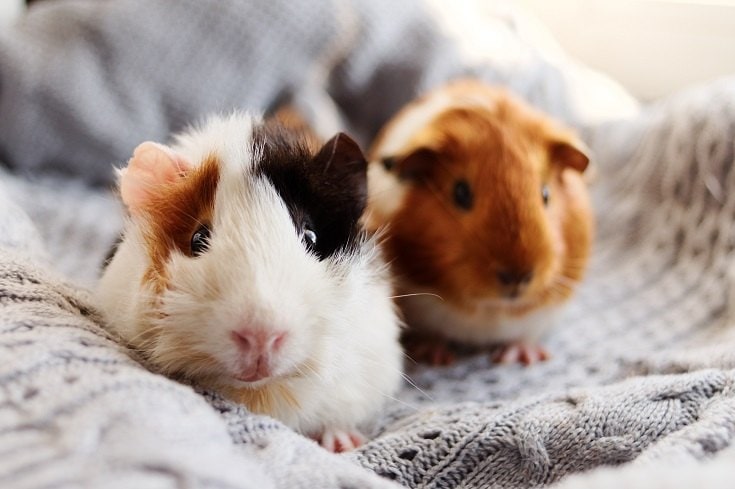
4. Squealing
You might be all-too-familiar with this noise. If they hear your voice or a rattling bag of food—all of a sudden, there’s a chorus of squeaks. They are plumb excited that they’re about to get something yummy to eat.
Guinea pigs use vocalizations to send you messages. Even though they can’t speak your language, hearing exciting squeals can speak loud and clear.
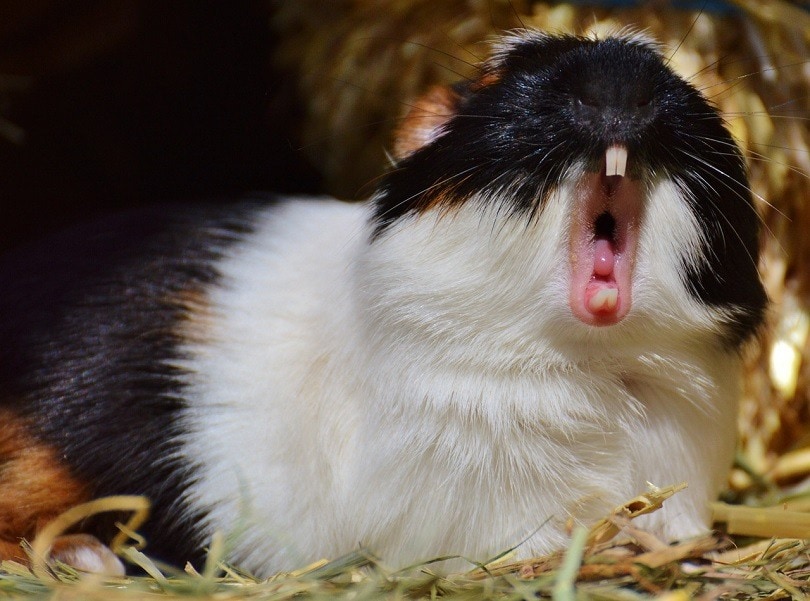
5. Not Hiding
If you come close to the cage, some guinea pigs might fearfully hide in their huts. However, if they curiously come up to the cage edge, this means they’re very comfortable with you.
These little critters know you mean no harm, which is huge for a little animal that spooks so easily. Consider this a real honor.
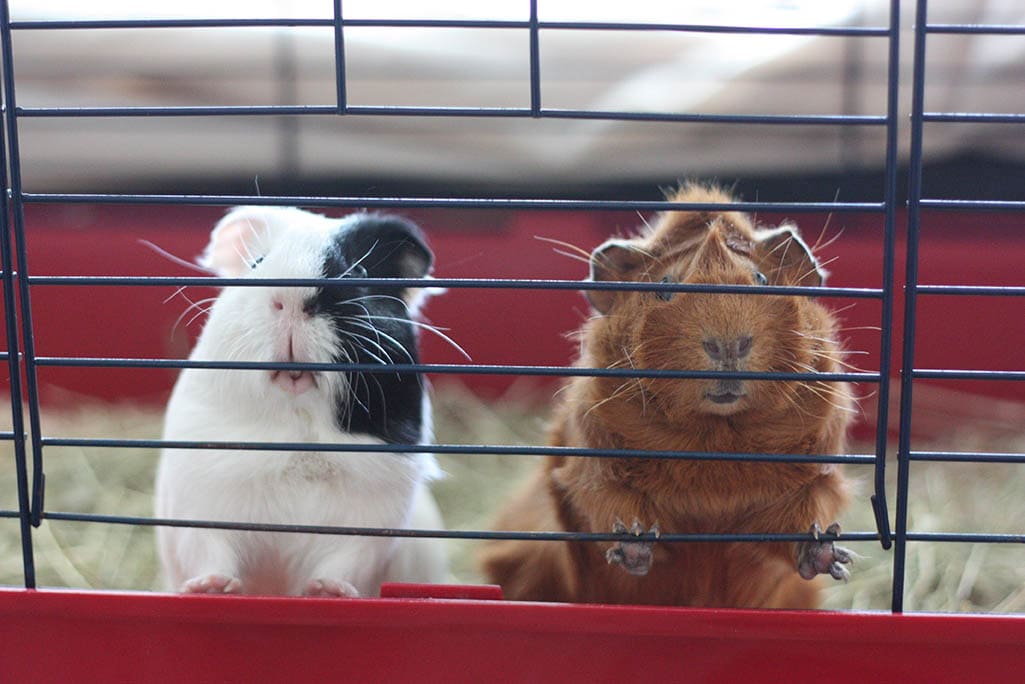
6. Nose Rubbing
You might find that when you pick up your little piggy, their noses wiggle against yours. These guinea kisses are the best.
Nose rubs are a very friendly gesture piggies use toward one another. So, if they use it with you—feel extra special! This means they consider you part of their family, or herd, in guinea pig terms.
7. Cuddling
A comfy guinea pig will cuddle you to pieces. They want to be nestled in your shirt or cozy in your arms. If a guinea pig is tense, fidgety, or jumpy, they might not be enjoying handling so much.
Cuddling, or even closing their eyes, in your presence means they feel entirely at ease. That is a sign of a very content piggy.
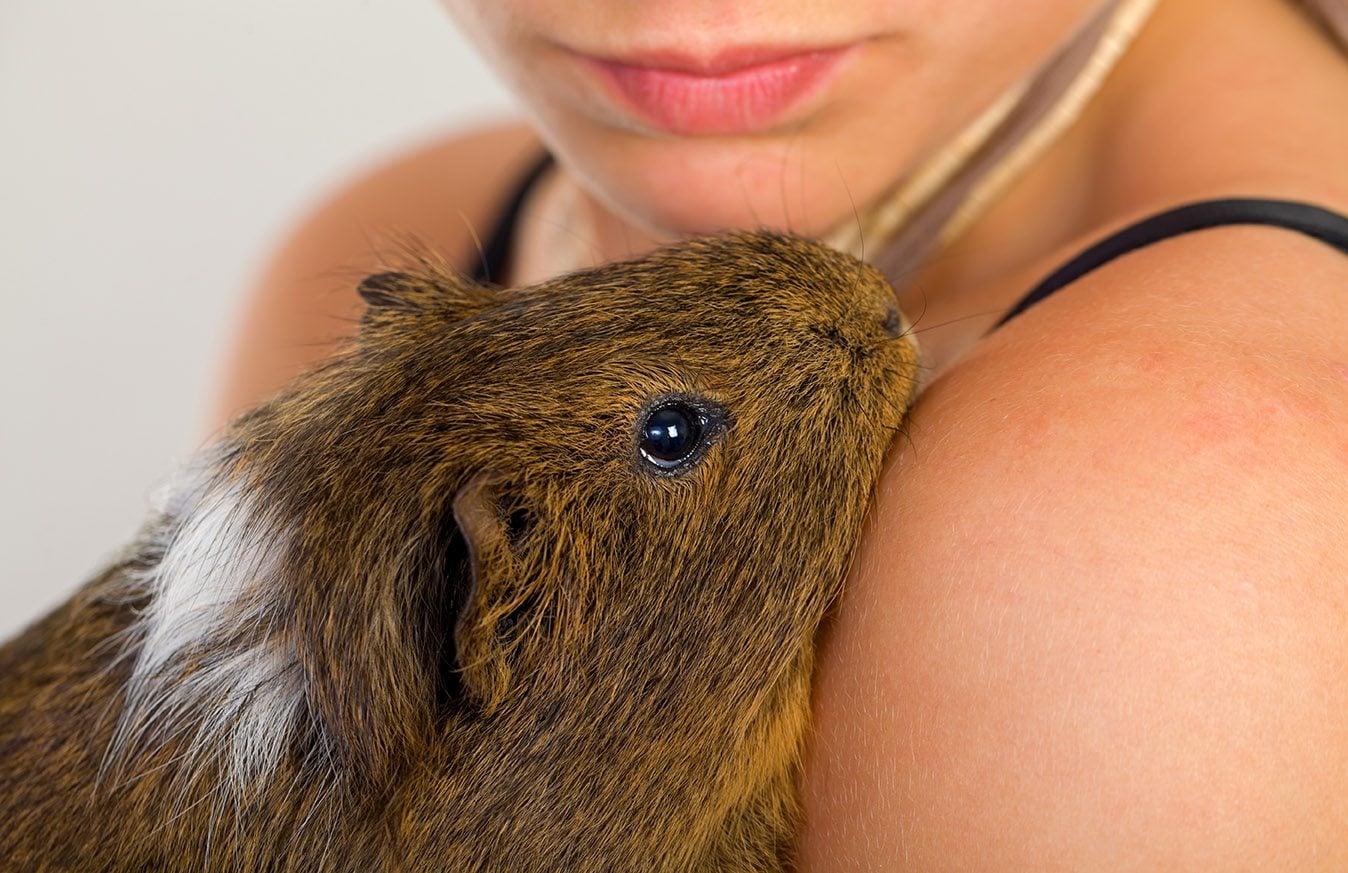
8. Grooming
If your guinea pig starts to groom you or their friends, this is a sign they’re content and ready to show affection. This action happens when guineas are relaxed, so you’ll never find a skittish pig taking time for a grooming session.
If a guinea pig licks you, they might also just enjoy the salt on your skin.
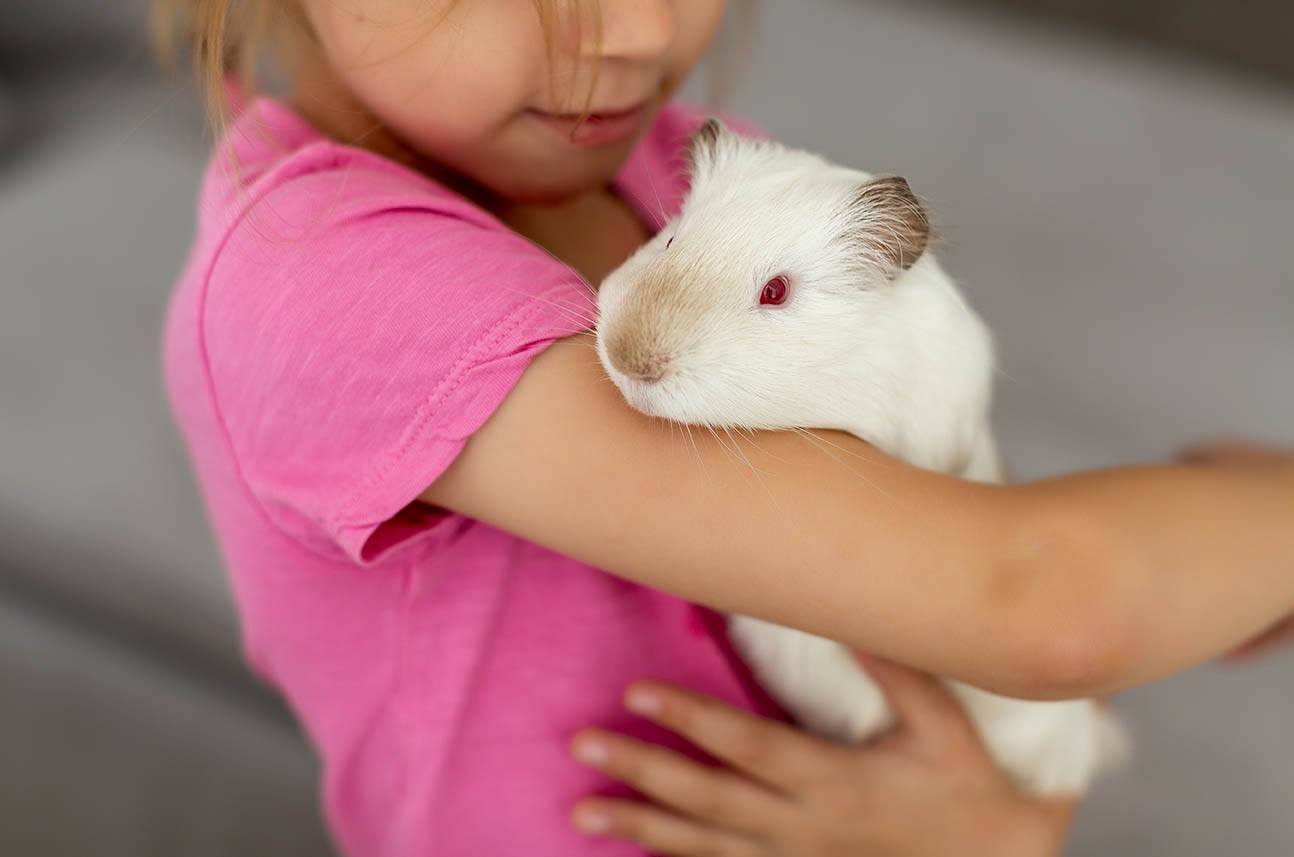
9. Playing
Happy guinea pigs will gladly engage in play. They may want you to chase them around on the floor or playing hide and seek. They have wonderful, active personalities when they are at ease.
You will have so much fun watching your little piggies exploring the house or their own private mazes.

Signs Your Guinea Pig is Not-So-Happy
Of course, the unfortunate reality is that sometimes our pets aren’t as happy as we wish they were. But all that really means is that we have to learn what’s wrong and work to fix it. All guinea pigs have different personalities that require special handling and care.
Chirping, Hissing, or Strutting
Often territorial behaviors, guinea picks don’t mind showing when they’re upset. If you bother them when they’re not in the mood, they might warn you not to intrude—your best bet is to listen.
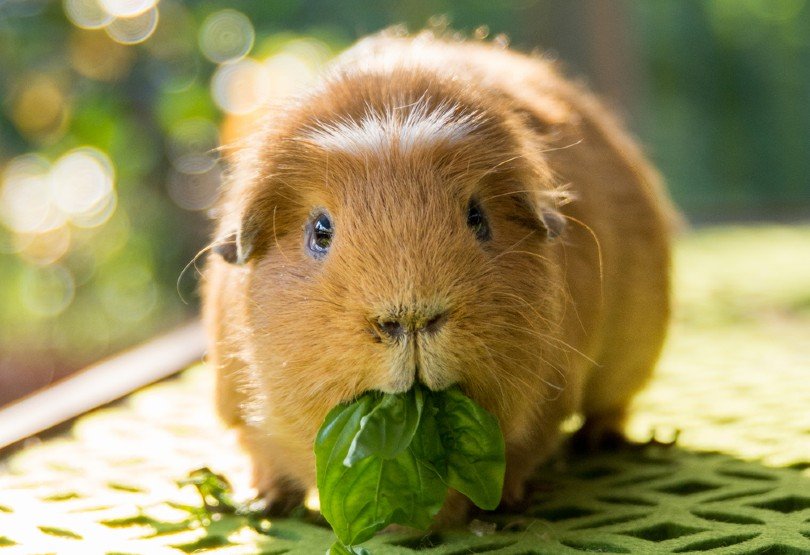
Biting, Nipping, or Bucking
If your guinea is snippy or mean, they don’t love whatever is happening. Usually, this occurs when they are trying to assert their dominance and can happen very quickly with males at sexual maturity.

Why Isn’t My Guinea Pig Happy?
If you read through and noticed that your piggy is displaying much more negative than positive behaviors, you probably want to know why. There can be several environmental factors that influence the behavior of your pet.
No Guinea Pig Playmates
Guinea pigs are social creatures, and they can get very depressed if they’re all alone. It might seem like human company suffices—but as you might relate, it’s not the same as bonding with your own kind. Your guinea pig should always have at least one playmate of the same sex.
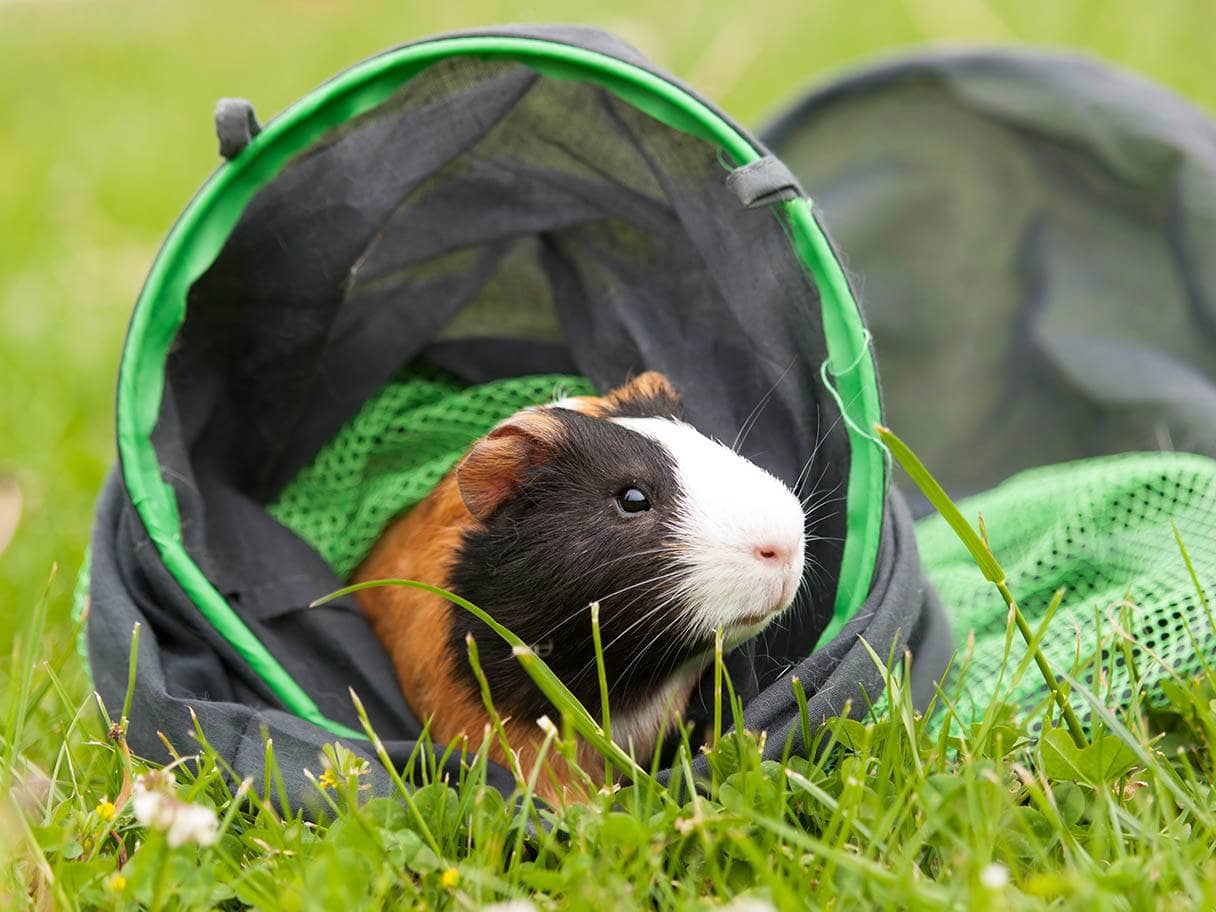
Incorrect Diet
If your little one isn’t getting all of the proper nutrition, it can cause all sorts of unwanted health issues, including depression.
Proper guinea pig diet includes:
- Commercial pellet food
- Vitamin C
- Hay
- Fresh fruits and veggies
Like humans, guinea pigs don’t produce their own vitamin C, so they must draw it from their diets. Buying food that is nutrient-rich in vitamin C is essential. Lack of vitamin C can cause vitamin C deficiency or scurvy.
Scared of Owners
Since guinea pigs are prey animals, they can be really sensitive to their environments. If there’s any over-stimulation happening, it might cause them to fear you.
Skittish behavior might also result from not having enough interaction. It’s crucial to bond with your guinea pig regularly to keep them feeling safe and socialized.
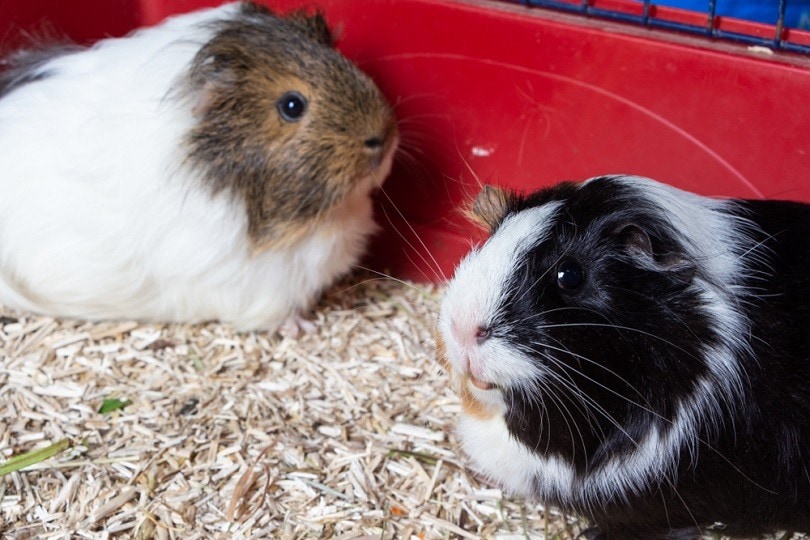
Not Enough Exercise
How often do you get your piggy out to play and mingle? If you have been falling behind lately, they might be down in the dumps—or developing a skittish streak. Constant interaction is vital to enforce and strengthen your bond.
On average, your piggy needs at least one hour of floor time to explore, play, and interact daily.

Final Thoughts
If your guinea pig appears bright-eyed and bushy-tailed, chances are they are happy with their life. It can be possible for guinea pigs to exhibit territorial or aggressive behaviors, especially in same-sex pairs. But this should be introductory level behavior and level out over time.
Ensure your guinea is well-fed, living in a clean environment, and getting out for daily exercise. Active lifestyles equal happy piggies.
Featured Image Credit: Pixabay
Ashley Bates is a freelance dog writer and pet enthusiast who is currently studying the art of animal therapy. A mother to four human children— and 23 furry and feathery kids, too – Ashley volunteers at local shelters, advocates for animal well-being, and rescues every creature she finds. Her mission is to create awareness, education, and entertainment about pets to prevent homelessness. Her specialties are cats and dogs.

